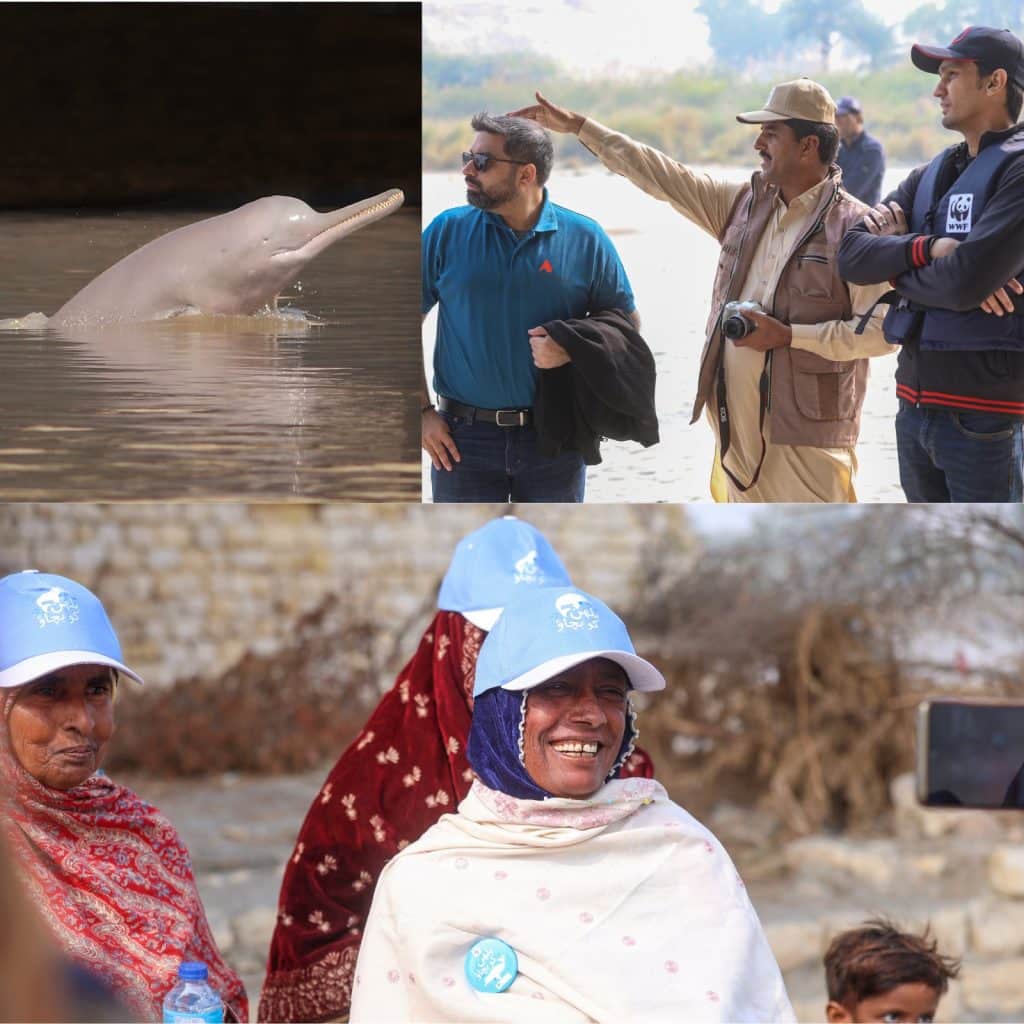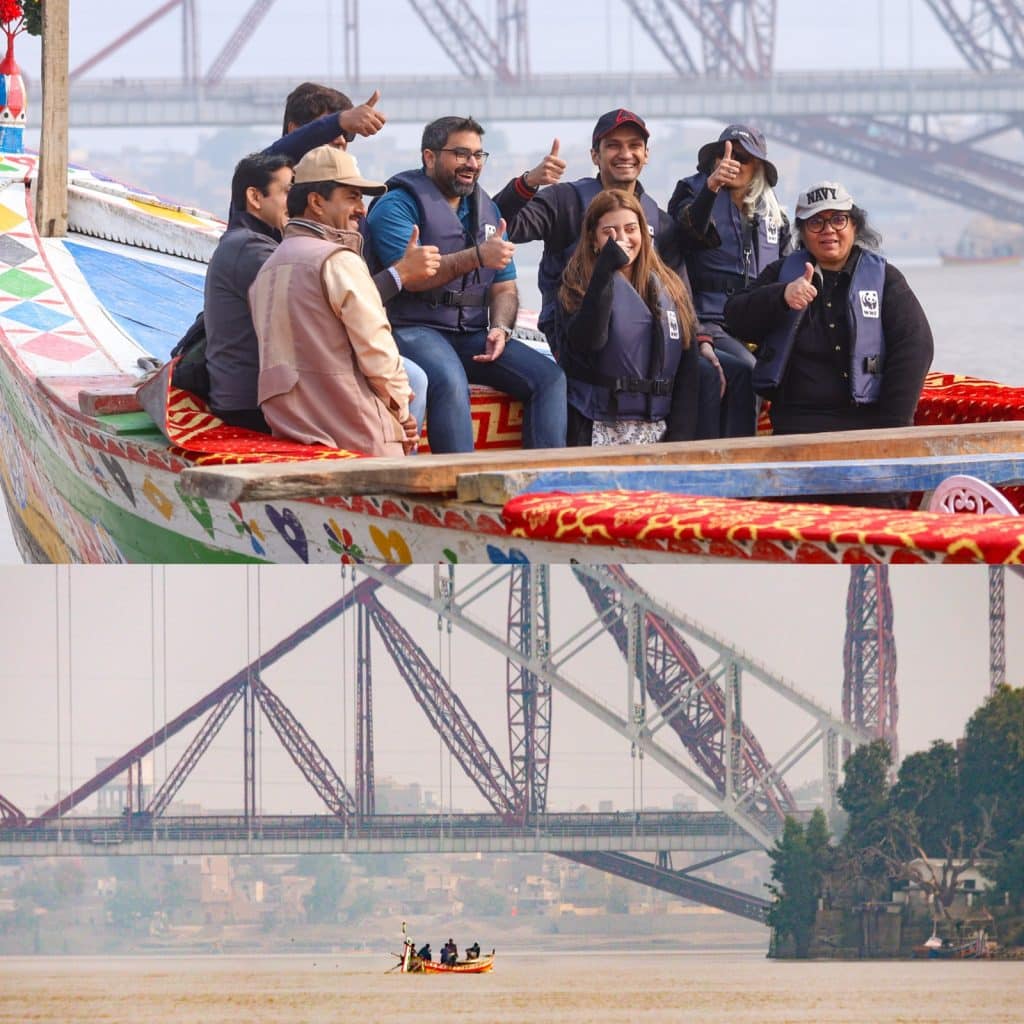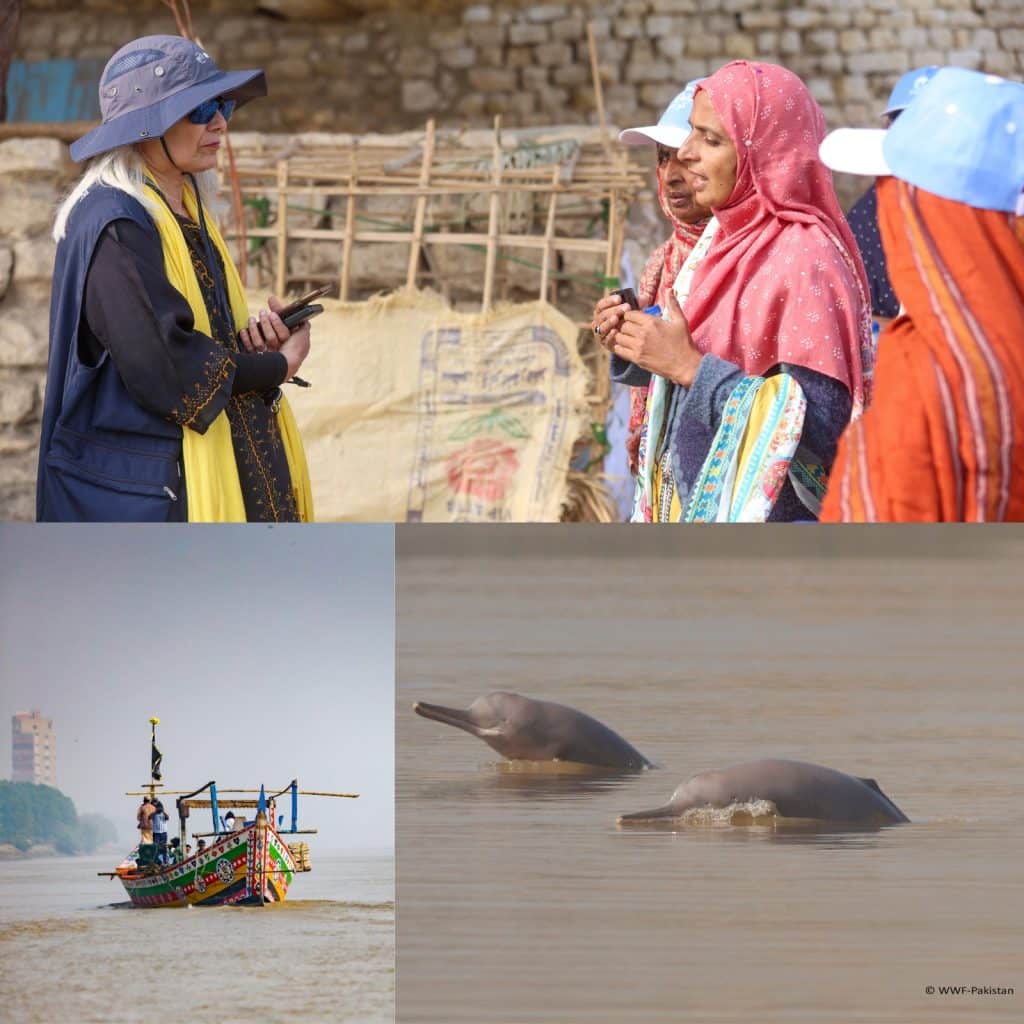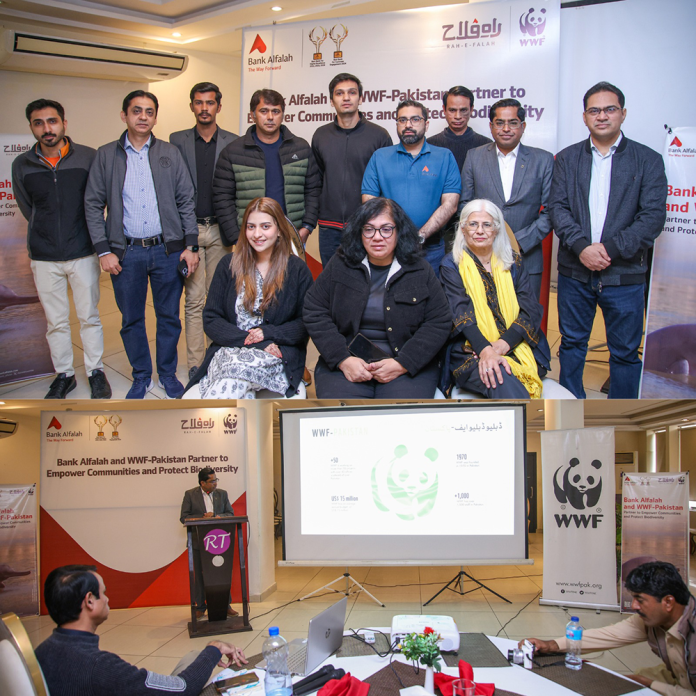After pledging to plant 100,000 trees to combat the impact of climate change, Bank Alfalah, one of the largest commercial banks in Pakistan, has partnered with WWF-Pakistan for another initiative, committing PKR 8.5 million to safeguard the endangered Indus River blind dolphins.
The partnership will engage local communities by establishing five Community-based organizations (CBOs), train 35 fishers, establish 10 nature clubs, and empower 700 students to become conservation champions, ensuring a brighter future for this unique species.

The Indus River dolphin, locally known as “Bhulan,” faces an alarming decline and is listed as Endangered on the International Union for Conservation of Nature Red List. Its population has declined to a mere 20% of its historical range due to a confluence of threats such as habitat loss, entanglement in fishing nets, and pollution.
The impact of climate change and the floods of 2022 has further worsened the situation. Climate change is altering the Indus River’s flow patterns and water temperatures, which in turn affects the habitat of the endangered Indus River dolphin. Floodwaters also tend to carry increased sediment, debris, and pollutants, potentially degrading water quality and compounding existing threats like entanglement in fishing nets and exposure to contaminants.

Bank Alfalah and WWF-Pakistan’s initiative focuses on a multi-pronged approach:
- Community Engagement: Establishing five CBOs to engage local communities in conservation efforts through awareness campaigns, training 25 fishers in data collection methods, and supporting the development of 5 community-based eco-tourism initiatives.
- Youth Empowerment: Educating and inspiring the next generation of conservationists by establishing 10 nature clubs in schools, developing 5 interactive educational toolkits, and engaging 700 students in awareness programs.
- Capacity Building: Training 10 community members as eco-guides and converting three traditional fishing boats into dolphin-watching vessels.
- Sustainable Eco-Tourism Development: Collaborating with authorities to develop sustainable tourism packages that generate revenue for conservation and local communities.
- Cultural Preservation: Celebrating the cultural significance of the Indus River dolphin through 5 community events, storytelling sessions, and heritage tours.

Commenting on the partnership Madiha Javed Qureshi, Head of Corporate Communication at Bank Alfalah said “We are proud to collaborate with WWF on this one-of-a-kind initiative, which highlights a unique species of dolphins which only has a habitat in the Indus River. Through this partnership, we will engage local communities in safeguarding dolphin habitats, raising awareness, and ultimately helping to grow their population, preserving a natural treasure that holds special significance for Pakistan.
To raise awareness about this issue, Bank Alfalah, along with its team and journalists, visited the Indus River in Sukkur and engaged with the local communities who will be actively involved in this project.

Beyond this crucial dolphin conservation effort, Bank Alfalah is actively contributing to environmental sustainability through its partnership with WWF-Pakistan for mangrove plantations. The bank has pledged to plant 100,000 mangroves by 2027 and has already successfully planted 40,000.
Furthermore, Bank Alfalah’s commitment to environmental responsibility is evident in its Head Office being awarded a Green Building certification by WWF-Pakistan. This recognition underscores the bank’s dedication to sustainable practices and minimizing its environmental impact.

In the wake of the recent devastating floods in Pakistan, Bank Alfalah demonstrated its unwavering support by contributing a substantial USD 10 million to flood-impacted communities. This significant contribution reflects the bank’s deep commitment to social responsibility and its proactive role in supporting those in need during times of crisis.
This initiative aligns with Bank Alfalah’s commitment to environmental sustainability and aligns with UN Sustainable Development Goals (SDGs) 11 (Sustainable Cities and Communities) and 14 (Life Below Water).


